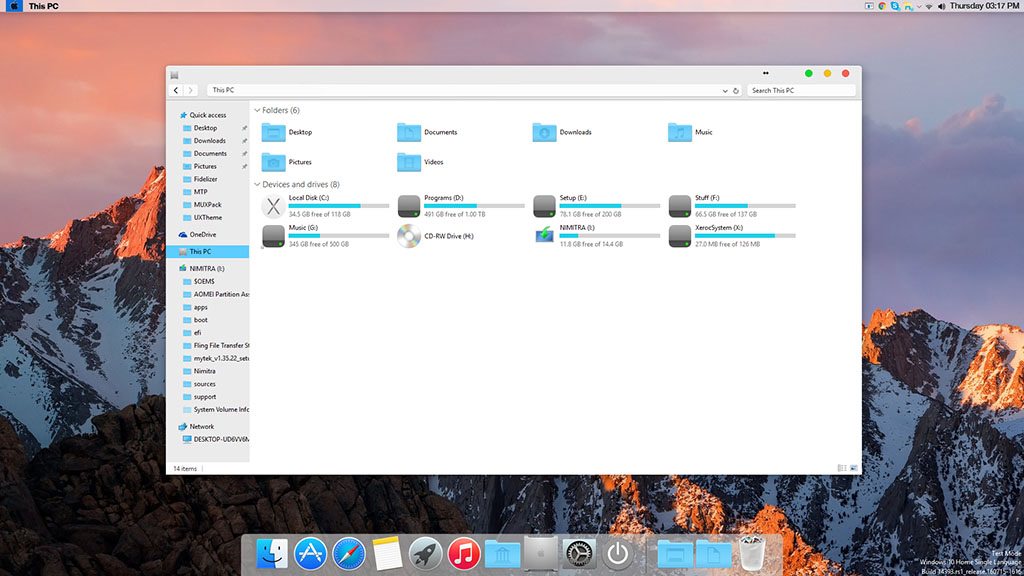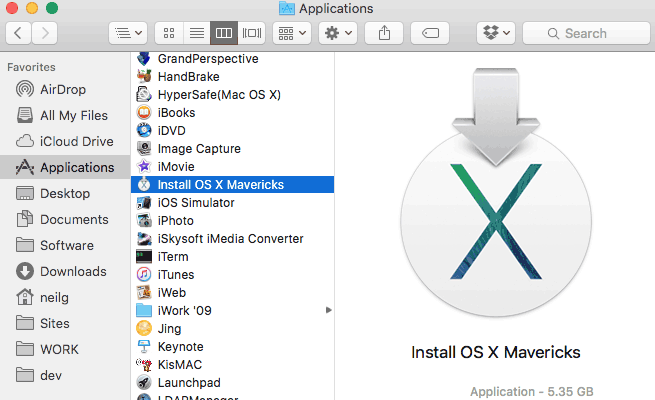
8gb or greater usb install os x yosemite zip file downloaded from mac store download from here now let s move to the actual tutorial to create bootable os x yosemite usb connect your usb drive with mac. Now click on erase.
Download And Create Usb Installer For Mac Os X Yosemite Mavericks Mountain Lion Or Lion Macbold
You will create the bootable installer from this app not from the disk image or pkg installer.
Create bootable usb mac disk utility yosemite. Now you ll have to wait a long time. How to get older macos installation files. Use the restore disk image to drive dialog box to browse for the dmg file with the installation files for mac os x yosemite in this case and click the ok button to create a bootable usb of the operating system.
Launch the mac app store on your mac. This method also works to creating usb installer for el capitan yosemite and maverick and the other previous version of mac os x as well. Look for the version of macos you want in the store if you have previously downloaded the version search under your purchased tab.
Install Os X Yosemite
Once you attached the usb drive it will shown on the left panel of disk utility. Step 2 open the installesd disk image. If you have already installed this version of macos you.
OS X Yosemite has a lot of people excited, and for some good reasons - a new, more iOS 7-like UI, AirDrop that works with iOS, calling from Mac, and a host of other really useful and fun new. Head over to your Applications folder and check that there is a file which says Install Yosemite. Prepare a USB Flash Drive (Must be 8Gb or larger) Plug the USB Drive in to your Mac and open “Disk Utility” (found under applications / utilities in finder) Select the USB Drive; Select the Erase tab; Ensure that the format is Mac OS. May 03, 2021 Download And Create Usb Installer For Mac Os X Yosemite Mavericks Mountain Lion Or Lion Macbold You will create the bootable installer from this app not from the disk image or pkg installer. Create bootable usb mac disk utility yosemite. Now you ll have to wait a long time. Apr 21, 2018 The 5GB OS X Yosemite installer app that downloads into your Applications folder when you first install it via the Mac App Store. The file name is Install OS X Yosemite. After you upgrade to Yosemite, this file is deleted. So you have to quit the installer once it appears in order to keep this file. Right-click the installer and select Show Package Contents from the context menu; b. Drill-down through the Contents Shared Support directories and drag-drop the InstallESD.dmg to the desktop; c. Using Disk Utility's 'Restore' tab, Perform a Restore into the appropriate partition, using InstallESD.dmg as.
Open terminal which is in the utilities folder of your applications folder. Plug the external usb drive into mac make sure you save your stuff from it. In the warning dialog box click the yes button.
First make sure you have a usb flash drive that s at least 8 gbs in size then mount it. Today i am showing how to make a boot able usb drive for mac using a dmg file 8gb usb drive and the disk utility that comes with mac os x. Because since el capitan the disk utility of macos was different if you running el capitan and want to create bootable u sb for macos sierra you can use yosemite disk utility for el capitan just google it.
Select basesystem dmg in disk utility s sidebar and then click the restore button in the main part of the window. Create a bootable install usb drive of mac os x 10 10 yosemite step 1 reformat your usb drive. I hope this hel.
Drag the basesystem dmg icon into the source field on the right if it isn t. Click on the download button. Select usb drive from the left sidebar.
Now that your usb thumb drive is ready you ll need to open the. Prepare usb drive for os x yosemite open disk utility from applications utilities or press cmd space keys form keyboard to find disk utility. Click on erase tab from right.

Use the createinstallmedia command in terminal connect the usb flash drive or other volume that you re using for the bootable installer.
Install Hackintosh Yosemite On Pc Laptop Hackintosh Shop
Macbook Pro Not Detecting Bootable Usb With Yosemite Ask Different
How To Use Terminal To Create And Delete Raid 0 Striped Arrays Raid Osx Yosemite Mac Computer
How To Install Os X Yosemite Beta On A New Partition Safely Dual Boot Osxdaily
3 Ways To Create A Bootable Install Usb Drive For Macos Or Os X
Clean Install Os X Yosemite On Your Apple Mac Raw Mac
Install Windows 8 With Boot Camp On Yosemite With Usb Key Ole Michelsen
How To Create An Encrypted Disk Image Using Mac S Disk Utility
How To Quickly Make A Mac Os X Bootable Usb On Windows Pureinfotech
How To Make A Bootable Os X 10 11 El Capitan Beta Usb Install Key Ihash Osx Yosemite Installation Usb
How To Make Os X Yosemite Installer Usb Drive Mac Os X
How To Create Bootable Usb Of Yosemite Os X 10 10 Computersnyou
How To Make A Bootable Os X Yosemite Beta Usb Install Drive Osxdaily
Windows Create Os X Install Usb On Win Nandor690
How To Install Os Yosemite On Any External Drive Thumb Drive Usb Disk Etc Compsmag
How To Create Bootable Usb Installer For Os X Yosemite
4 Tools To Burn Dmg File To Usb On Windows And Macos Uubyte
Mac Os X Yosemite Bootable Usb Download Peatix
How To Make Bootable Os X Yosemite Usb Flash Drives And Other Media
Posting terkait:
These advanced steps are primarily for system administrators and others who are familiar with the command line. You don't need a bootable installer to upgrade macOS or reinstall macOS, but it can be useful when you want to install on multiple computers without downloading the installer each time.
Mac Os Versions
What you need to create a bootable installer
- A USB flash drive or other secondary volume formatted as Mac OS Extended, with at least 14 GB of available storage
- A downloaded installer for macOS Big Sur, Catalina, Mojave, High Sierra or El Capitan
Download macOS
- Download: macOS Big Sur, macOS Catalina, macOS Mojave or macOS High Sierra
These will be downloaded to your Applications folder as an app named Install macOS [version name]. If the installer opens after downloading, quit it without continuing installation. To get the correct installer, download from a Mac that is using macOS Sierra 10.12.5 or later, or El Capitan 10.11.6. Enterprise administrators, please download from Apple, not a locally hosted software-update server. - Download: OS X El Capitan
This will be downloaded as a disk image named InstallMacOSX.dmg. On a Mac that is compatible with El Capitan, open the disk image and run the installer within, named InstallMacOSX.pkg. It will install an app named Install OS X El Capitan into your Applications folder. You will create the bootable installer from this app, not from the disk image or .pkg installer.
Use the 'createinstallmedia' command in Terminal
- Connect the USB flash drive or other volume that you're using for the bootable installer.
- Open Terminal, which is in the Utilities folder of your Applications folder.
- Type or paste one of the following commands in Terminal. These assume that the installer is in your Applications folder and MyVolume is the name of the USB flash drive or other volume you're using. If it has a different name, replace
MyVolumein these commands with the name of your volume.
Big Sur:*
Catalina:*
Mojave:*
High Sierra:*
El Capitan:
* If your Mac is using macOS Sierra or earlier, include the --applicationpath argument and installer path, similar to the way this is done in the command for El Capitan.
After typing the command:
- Press Return to enter the command.
- When prompted, type your administrator password and press Return again. Terminal doesn't show any characters as you type your password.
- When prompted, type
Yto confirm that you want to erase the volume, then press Return. Terminal shows the progress as the volume is erased. - After the volume has been erased, you may see an alert stating that Terminal would like to access files on a removable volume. Click OK to allow the copy to proceed.
- When Terminal says that it's been completed, the volume will have the same name as the installer you downloaded, such as Install macOS Big Sur. You can now quit Terminal and eject the volume.
Use the bootable installer
Determine whether you're using a Mac with Apple silicon, then follow the appropriate steps:
Apple silicon
- Plug the bootable installer into a Mac that is connected to the internet and compatible with the version of macOS you're installing.
- Turn on your Mac and continue to hold the power button until you see the startup options window, which shows your bootable volumes.
- Select the volume containing the bootable installer, then click Continue.
- When the macOS installer opens, follow the onscreen instructions.
Intel processor
- Plug the bootable installer into a Mac that is connected to the internet and compatible with the version of macOS you're installing.
- Press and hold the Option (Alt) ⌥ key immediately after turning on or restarting your Mac.
- Release the Option key when you see a dark screen showing your bootable volumes.
- Select the volume containing the bootable installer. Then click the up arrow or press Return.
If you can't start up from the bootable installer, make sure the External Boot setting in Startup Security Utility is set to allow booting from external media. - Choose your language, if prompted.
- Select Install macOS (or Install OS X) from the Utilities window, then click Continue and follow the onscreen instructions.
Learn more

A bootable installer doesn't download macOS from the internet, but it does require an internet connection to get firmware and other information specific to the Mac model.
For information about the createinstallmedia command and the arguments you can use with it, make sure the macOS installer is in your Applications folder, then enter the appropriate path in Terminal: